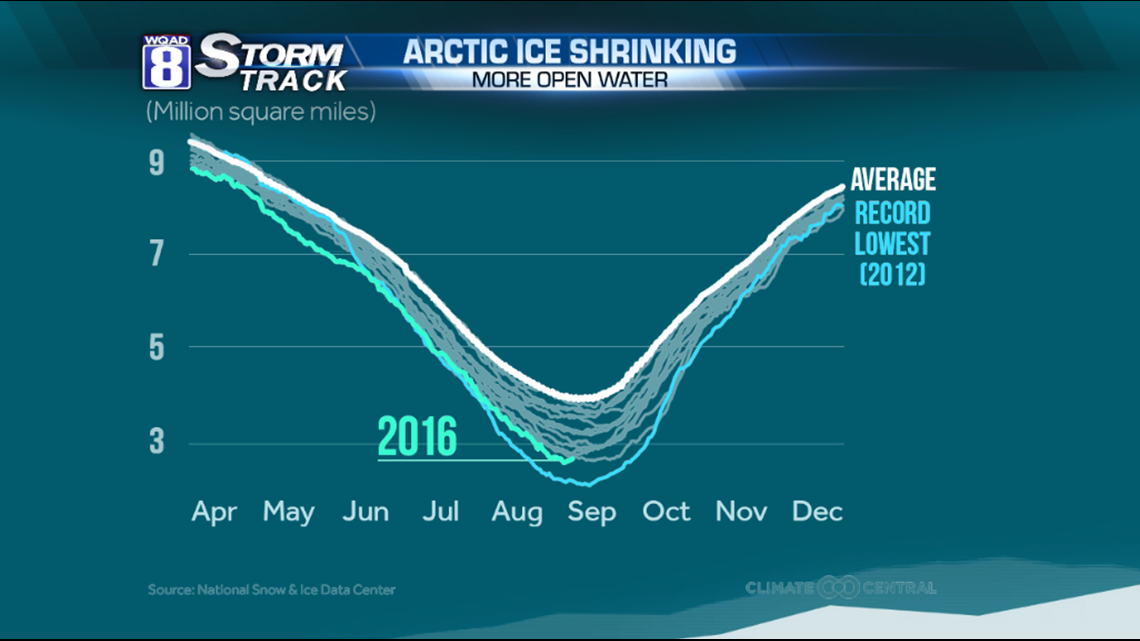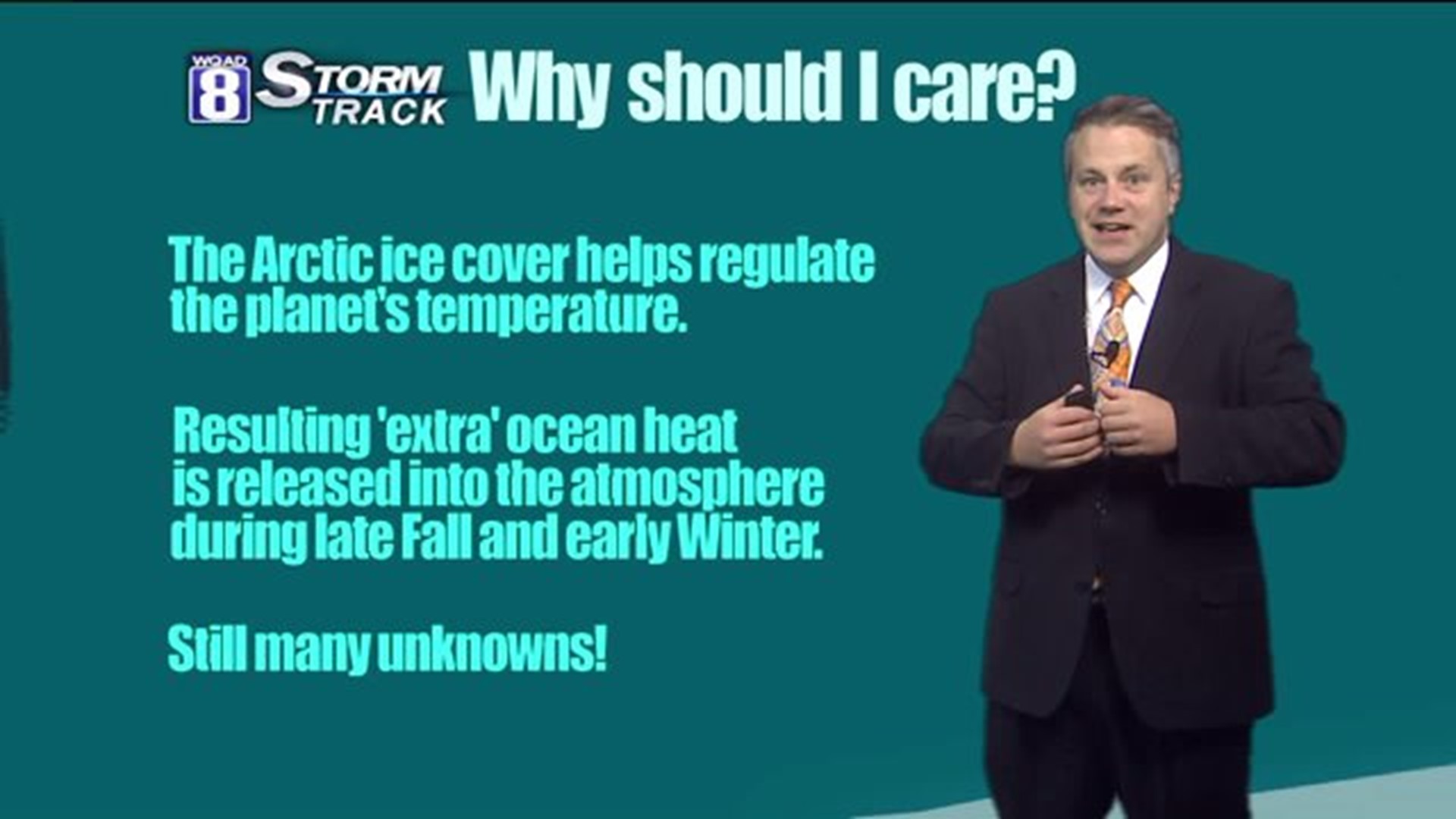As Summer winds down next week, new data is coming in concerning Arctic sea ice and the results are alarming...again.
Sea ice in the Arctic Ocean has hit its minimum for the year. This is a normal occurrence because of the more direct rays and warmer temperatures in Summer. Due to those more direct rays and warmer temperatures, Arctic sea ice melts during the spring and summer months and then refreezes in the fall and winter. But data from this summer shows the lack of ice is the second smallest summer minimum on record. This is in part due to the fact that this winter was so warm in the higher latitudes. In March, Arctic sea ice was at a record low, followed by steep rates of melting in the spring and summer.
According to Joe Witte, a Meteorologist with NASA's Goddard Space Flight Center, this year's lack of extensive sea ice pales in comparison to where it was in the 1980s. "In the early 1980s, "end of summer sea ice" covered 2.89 Million square miles. Right now, sea ice covers 1.60 Million square miles. That means there are 1.29 Million square miles of additional open water in the Arctic Ocean this Summer!"
Smaller sea ice in the Arctic is caused by many factors. Even though individual years can vary greatly due to weather conditions, the melt season is lengthening, in part because the minimum is trending later in September. As more ice melts, more ocean becomes exposed, and open water absorbs more heat, whereas ice reflects the sun’s rays. This causes Arctic temperatures to rise, feeding a loop that causes even greater amounts of ice to melt. This feedback is the main reason temperatures in the Arctic are increasing twice as fast as global temperatures.
Finally? Why should we care. We should care any time our natural environment changes. We know that a lack of sea ice is having a significant impact on the polar bear population. The bears are endangered and as sea ice decreases quickly, their habitat could go away completely.
-Meteorologist Eric Sorensen



